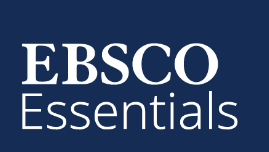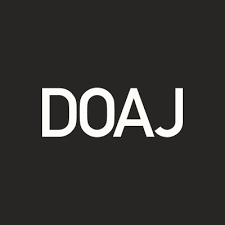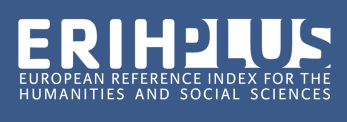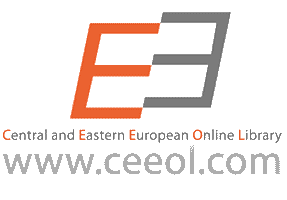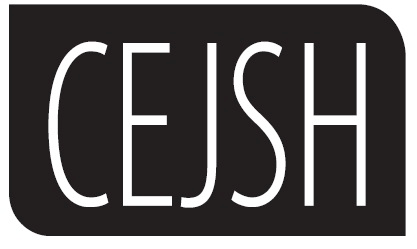Current issue
Online first
Archive
About the Journal
Aims & Scope
Journal history
Editorial Board
Editorial Advisory Board
Ethical Standards
Indexing
Licenses & Access
Archiving & Preservation
For authors
Information for Authors
Article template
Use of AI in the Research Process
Reviewing
Review procedure
List of reviewers
Use of AI in the Review Process
Announcements
Special Issue: "Feminist Economics in Explaining Economic and Social Inequalities"
Special Issue: “20 Years of Law and Economics in Poland”
Special Issue: “Political economy in Central and Eastern Europe”
Contact
Ethical Standards
“Ekonomista” follows the COPE Core Practices and the Principles of Transparency and Best Practice in Scholarly Publishing. The Editors and the Publisher are responsible for the integrity of the scholarly record and follow COPE guidance when concerns arise. Editorial decisions are based solely on the scholarly merit of submissions and are made independently of authors’ gender, race, ethnicity, religion, citizenship, institutional affiliation, or political views.
Scope, originality, and fairness
“Ekonomista” accepts submissions of original, previously unpublished scientific papers. Manuscripts are evaluated for their scholarly contribution, methodological soundness, and relevance to the journal’s aims, in accordance with ethical principles and without discrimination.
Peer review and confidentiality
Submissions undergo double-blind peer review by at least two independent reviewers; additional reviews may be sought where necessary. Editors, Editorial Board members, reviewers, and staff maintain the confidentiality of manuscripts and reviewer identities. Personal data are protected in accordance with applicable law (GDPR).
Authorship and contributorship
Authorship should reflect substantial scholarly contributions to the conception or design of the work; or acquisition, analysis, or interpretation of data; and drafting or critical revision of the manuscript; with all authors approving the final version and being accountable for the work. The journal does not allow ghostwriting or guest authorship. We encourage transparent contribution statements and require disclosure of funding and relevant acknowledgements. Requests to add, remove, or reorder authors after submission must be justified and approved by all listed authors.
Conflicts of interest
Authors, reviewers, and editors must declare any potential conflicts of interest (financial, personal, professional, or institutional) that could be perceived to influence the work or its evaluation. Editors will manage declared conflicts, including reassignment or recusal where appropriate. Undisclosed conflicts identified post-publication will be handled in line with COPE guidance.
Research ethics and participant protection
Research involving human participants must state prior approval by an appropriate ethics committee and confirm informed consent; research involving animals must state compliance with recognized welfare standards. Authors must ensure privacy and confidentiality of participants and obtain consent for any identifiable material. Where relevant (e.g., clinical trials or preregistered studies), authors should provide registration details.
Data, materials, and reproducibility
Authors are encouraged to provide a data availability statement and, where feasible and lawful, make underlying data, code, and materials available in trusted repositories or upon reasonable request. Methods should be reported with sufficient detail to permit verification and replication. Any restrictions (e.g., legal, commercial, privacy) must be clearly explained.
Misconduct, integrity, and use of COPE guidance
The Editorial Board takes active steps to prevent and address misconduct, including plagiarism, self-plagiarism, data fabrication or falsification, citation manipulation, and unethical research practices. Manuscripts may be checked with similarity-detection tools. Allegations of misconduct, pre- or post-publication, are investigated in accordance with COPE flowcharts. Where necessary, the journal will publish corrections, expressions of concern, or retractions, and may notify relevant institutions or funders.
Complaints and appeals
Authors, reviewers, or readers may submit complaints or appeals (e.g., about editorial decisions, peer-review conduct, or ethical concerns) to the Editor-in-Chief via the contact details provided on the journal website. Appeals are reviewed by an editor not involved in the original decision (or an appropriate delegate). The journal aims to address complaints promptly, fairly, and transparently, following COPE guidance.
Post-publication discussion and corrections
The journal supports post-publication dialogue conducted in a respectful and evidence-based manner (e.g., letters to the editor or reasoned correspondence). Verified errors will be corrected through notices linked to the version of record; significant issues will be addressed through expressions of concern or retractions as warranted.
Transparency of policies and process
The publication policy and author guidelines are described in the "For Authors" section of the website. After logging into the editorial system, authors can track the stage of the editorial process for their submission. Each year the journal publishes a list of reviewers who have contributed to the peer-review process.
Access, licensing, and fees
“Ekonomista” is an open-access journal. Licensing terms and permitted uses are stated on the website. The journal does not charge submission or publication fees (no APCs). Any deviations from these defaults will be clearly disclosed.
Ownership, editorial independence, and marketing
Information about ownership and management, the editorial team, and contact details is available on the journal website. Editorial decisions are made independently and are not influenced by commercial interests. The journal does not accept advertising or direct marketing that could compromise editorial integrity; if any marketing activities occur, they are kept separate from editorial decision-making and are transparently disclosed.
Indexing, identifiers, and preservation
The journal assigns persistent identifiers (DOIs) and maintains high-quality metadata. Content is preserved through long-term archiving arrangements with national repositories to ensure ongoing accessibility of the scholarly record.
Scope, originality, and fairness
“Ekonomista” accepts submissions of original, previously unpublished scientific papers. Manuscripts are evaluated for their scholarly contribution, methodological soundness, and relevance to the journal’s aims, in accordance with ethical principles and without discrimination.
Peer review and confidentiality
Submissions undergo double-blind peer review by at least two independent reviewers; additional reviews may be sought where necessary. Editors, Editorial Board members, reviewers, and staff maintain the confidentiality of manuscripts and reviewer identities. Personal data are protected in accordance with applicable law (GDPR).
Authorship and contributorship
Authorship should reflect substantial scholarly contributions to the conception or design of the work; or acquisition, analysis, or interpretation of data; and drafting or critical revision of the manuscript; with all authors approving the final version and being accountable for the work. The journal does not allow ghostwriting or guest authorship. We encourage transparent contribution statements and require disclosure of funding and relevant acknowledgements. Requests to add, remove, or reorder authors after submission must be justified and approved by all listed authors.
Conflicts of interest
Authors, reviewers, and editors must declare any potential conflicts of interest (financial, personal, professional, or institutional) that could be perceived to influence the work or its evaluation. Editors will manage declared conflicts, including reassignment or recusal where appropriate. Undisclosed conflicts identified post-publication will be handled in line with COPE guidance.
Research ethics and participant protection
Research involving human participants must state prior approval by an appropriate ethics committee and confirm informed consent; research involving animals must state compliance with recognized welfare standards. Authors must ensure privacy and confidentiality of participants and obtain consent for any identifiable material. Where relevant (e.g., clinical trials or preregistered studies), authors should provide registration details.
Data, materials, and reproducibility
Authors are encouraged to provide a data availability statement and, where feasible and lawful, make underlying data, code, and materials available in trusted repositories or upon reasonable request. Methods should be reported with sufficient detail to permit verification and replication. Any restrictions (e.g., legal, commercial, privacy) must be clearly explained.
Misconduct, integrity, and use of COPE guidance
The Editorial Board takes active steps to prevent and address misconduct, including plagiarism, self-plagiarism, data fabrication or falsification, citation manipulation, and unethical research practices. Manuscripts may be checked with similarity-detection tools. Allegations of misconduct, pre- or post-publication, are investigated in accordance with COPE flowcharts. Where necessary, the journal will publish corrections, expressions of concern, or retractions, and may notify relevant institutions or funders.
Complaints and appeals
Authors, reviewers, or readers may submit complaints or appeals (e.g., about editorial decisions, peer-review conduct, or ethical concerns) to the Editor-in-Chief via the contact details provided on the journal website. Appeals are reviewed by an editor not involved in the original decision (or an appropriate delegate). The journal aims to address complaints promptly, fairly, and transparently, following COPE guidance.
Post-publication discussion and corrections
The journal supports post-publication dialogue conducted in a respectful and evidence-based manner (e.g., letters to the editor or reasoned correspondence). Verified errors will be corrected through notices linked to the version of record; significant issues will be addressed through expressions of concern or retractions as warranted.
Transparency of policies and process
The publication policy and author guidelines are described in the "For Authors" section of the website. After logging into the editorial system, authors can track the stage of the editorial process for their submission. Each year the journal publishes a list of reviewers who have contributed to the peer-review process.
Access, licensing, and fees
“Ekonomista” is an open-access journal. Licensing terms and permitted uses are stated on the website. The journal does not charge submission or publication fees (no APCs). Any deviations from these defaults will be clearly disclosed.
Ownership, editorial independence, and marketing
Information about ownership and management, the editorial team, and contact details is available on the journal website. Editorial decisions are made independently and are not influenced by commercial interests. The journal does not accept advertising or direct marketing that could compromise editorial integrity; if any marketing activities occur, they are kept separate from editorial decision-making and are transparently disclosed.
Indexing, identifiers, and preservation
The journal assigns persistent identifiers (DOIs) and maintains high-quality metadata. Content is preserved through long-term archiving arrangements with national repositories to ensure ongoing accessibility of the scholarly record.
We process personal data collected when visiting the website. The function of obtaining information about users and their behavior is carried out by voluntarily entered information in forms and saving cookies in end devices. Data, including cookies, are used to provide services, improve the user experience and to analyze the traffic in accordance with the Privacy policy. Data are also collected and processed by Google Analytics tool (more).
You can change cookies settings in your browser. Restricted use of cookies in the browser configuration may affect some functionalities of the website.
You can change cookies settings in your browser. Restricted use of cookies in the browser configuration may affect some functionalities of the website.





